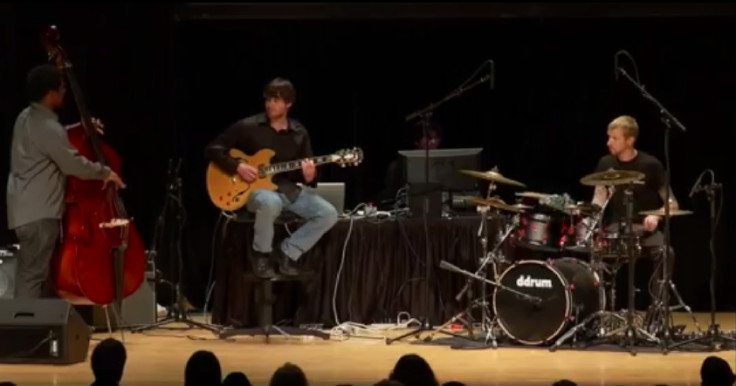Cyborg Drummer Jason Barnes Plays First Gig with Robot Arm
A drummer who lost his right hand in an accident has debuted his new robotic replacement in his first gig.
The video of the Georgia Tech Center for Music Technology Robotic Musicianship Concert has been published on YouTube. In it, Jason Barnes puts on an inspiring first-ever performance using the GATech robotic drumming prosthesis.
In 2012, Barnes was so badly electrocuted while working on the roof of a restaurant that his hand had to be amputated. Weeks after the operation, out of boredom, Barnes taped a stick to his arm to see if he could still play the drums.
In the video, Barnes describes how be got back into playing music after his accident: "I was down and depressed, I didn't really know where I was going with my life. And so about three weeks after that, out of boredom - I was losing my mind - I dragged my drum set out of the garage, and proceeded to tape a stick to my arm to see if it was still possible to play the drums."

Despite excruciating pain, Barnes continued to play for a few minutes and realised he could still do it.
He built a makeshift "drumming hand" out of a wrist brace and a spring, and performed well enough to enroll at the Atlanta Institute of Music and Media.
At the school, his drum teacher introduced him to Gil Weinberg, a professor of music technology and an inventor of experimental musical instruments and musical robots. The three put together a plan to build Barnes an arm that would restore the functionality of his lost hand - and allow him to play better than ever before.
The prosthesis allows Barnes to control his grip on one drumstick by flexing the muscles in his bicep. It also features a second, autonomous drumstick controlled by a drum-playing algorithm which possesses the ability to improvise accompanying beats in the style of Thelonious Monk and John Coltrane.
Barnes said: "Now I can flex and send signals to a computer that tightens or loosens the stick and controls the rebound. I'll bet a lot of metal drummers might be jealous of what I can do now. Speed is good. Faster is always better."
Previously, Weinberg had told New Scientist: "In some cases, we were able to create some surprises, with music that cannot be created by humans alone. The next interesting step is to see what happens when you are part of the robot and the robot is part of you."
At the debut concernt, Weinberg elaborated that he wanted to see "what happens when the intimate connections that can be created between humans and robots was not separate".
An "intimate connection" is created between Barnes and Richard Feynman, an American theoretical physicist who was also a drummer. Weinberg and his team uploaded recordings of Feynman playing into Barnes's cyborg drumstick, allowing him to "play" with the scientist who died in 1988.
© Copyright IBTimes 2025. All rights reserved.




















